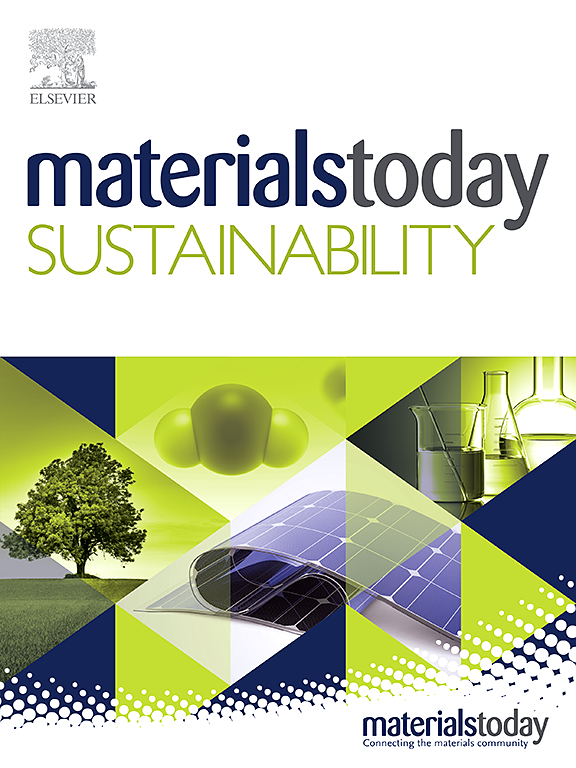可持续3D打印的挑战和创新
IF 7.9
3区 材料科学
Q1 GREEN & SUSTAINABLE SCIENCE & TECHNOLOGY
引用次数: 0
摘要
增材制造(AM)或3D打印是一种变革性的生产技术,提供了设计自由、材料效率和大规模定制。然而,由于能源密集型工艺、有限的材料可回收性以及生命周期影响评估方面的挑战,其环境可持续性仍然是一个关键问题。本文对增材制造的可持续性挑战和创新进行了全面分析,重点是材料挤压(MEX)和相关的聚合物技术。它探讨了原生和再生材料的环境性能,能源消耗和机械性能之间的权衡,以及可生物降解和生物基聚合物的最新发展。该综述还综合了生命周期评估(lca)、能源优化实验和材料循环研究的结果,为可持续增材制造提供了一个综合框架。通过连接技术进步、材料科学和可持续性指标,这项工作突出了将增材制造实践与循环经济原则相结合的关键战略。该综述旨在指导研究人员、工程师和政策制定者了解可持续3D打印的当前局限性和未来方向。本文章由计算机程序翻译,如有差异,请以英文原文为准。
Challenges and innovations in sustainable 3D printing
Additive manufacturing (AM), or 3D printing, is a transformative production technology offering design freedom, material efficiency, and mass customization. However, its environmental sustainability remains a critical concern due to energy-intensive processes, limited recyclability of materials, and challenges in lifecycle impact assessment. This review presents a comprehensive analysis of sustainability challenges and innovations in AM, with a focus on material extrusion (MEX) and related polymer-based techniques. It explores the environmental performance of both virgin and recycled materials, the trade-offs between energy consumption and mechanical performance, and recent developments in biodegradable and bio-based polymers. The review also synthesizes findings from lifecycle assessments (LCAs), energy optimization experiments, and material circularity studies to provide an integrated framework for sustainable additive manufacturing. By bridging technological advances, material science, and sustainability metrics, this work highlights key strategies for aligning AM practices with circular economy principles. The review aims to guide researchers, engineers, and policymakers in understanding the current limitations and future directions of sustainable 3D printing.
求助全文
通过发布文献求助,成功后即可免费获取论文全文。
去求助
来源期刊

Materials Today Sustainability
Multiple-
CiteScore
5.80
自引率
6.40%
发文量
174
审稿时长
32 days
期刊介绍:
Materials Today Sustainability is a multi-disciplinary journal covering all aspects of sustainability through materials science.
With a rapidly increasing population with growing demands, materials science has emerged as a critical discipline toward protecting of the environment and ensuring the long term survival of future generations.
 求助内容:
求助内容: 应助结果提醒方式:
应助结果提醒方式:


